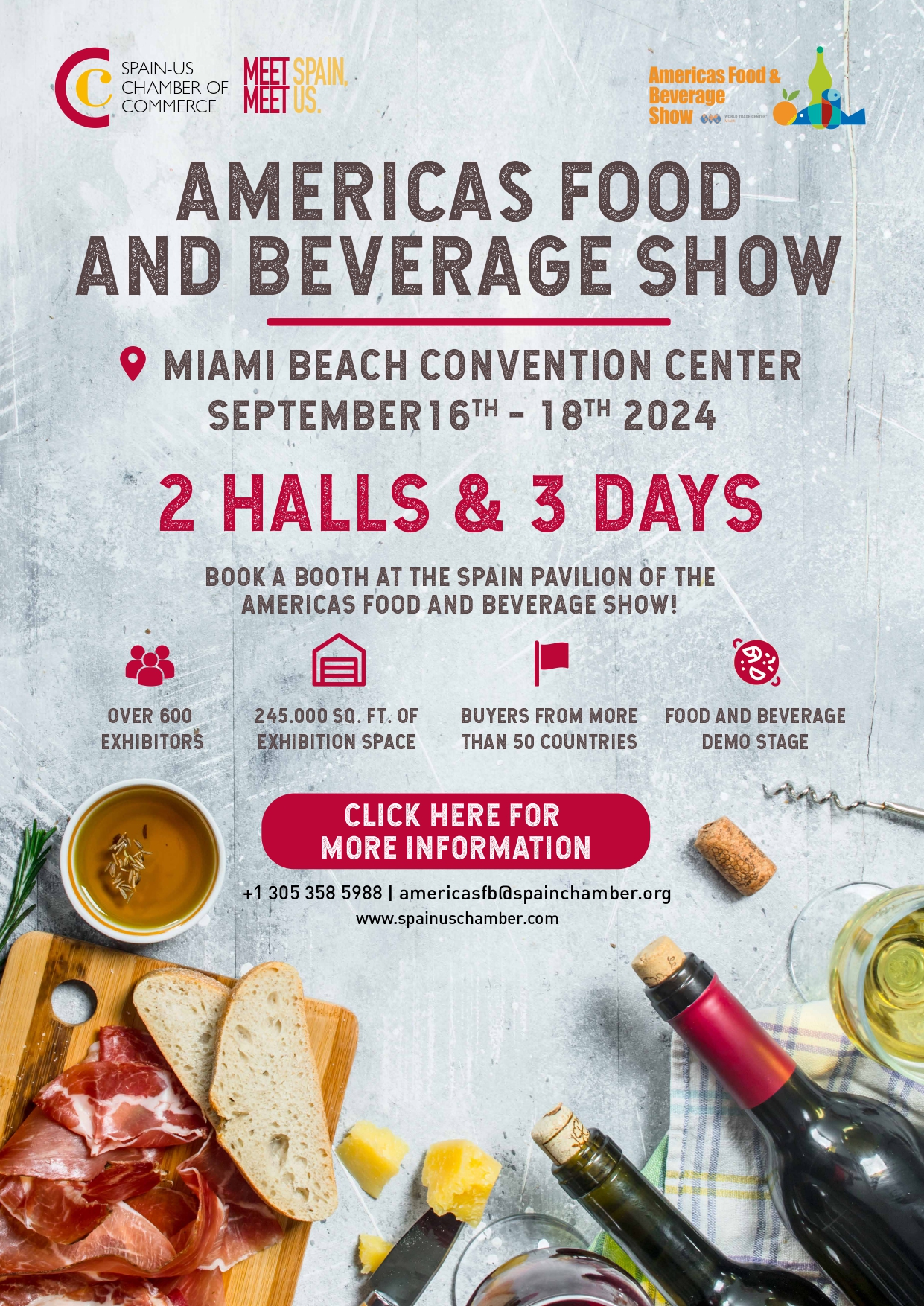
- By: Spain-US Chamber of Commerce, Inc.
- Author: Julio Hoyos
- International Business Development
Navigating the complex landscape of international trade requires a deep understanding of both local and international regulations. This is especially true for businesses in Spain looking to expand their reach to the U.S. market, one of the largest and most lucrative markets globally. The U.S. demands strict adherence to a variety of food safety and import regulations, making the export process appear daunting at first glance. However, with the right guidance and thorough preparation, Spanish agri-food producers can successfully export their goods, tapping into new growth opportunities. This detailed guide provides a roadmap for Spanish exporters to understand and comply with the necessary U.S. regulations, ensuring a smooth and successful market entry. From documentation to compliance checks, each step is crucial and must be meticulously planned to avoid any potential hurdles that could impede the success of exporting agri-food products to the U.S.
- Commercial Invoice and Packing List: Every shipment must include a commercial invoice and packing list in English. These documents should specify that the products are from Spain (“Product of Spain”), list the 10-digit tariff code (which can be found https://hts.usitc.gov/), and the Food and Drug Administration (FDA) registration numbers of the manufacturer and its products (FFR, FCE, SID).
- Health Certificate: Depending on the product type, a health certificate may be necessary. This certificate, also in English, must accompany food items, particularly those containing produce or animal products like meats and egg products, to ensure they meet the safety standards required by U.S. regulations.
- Ingredient Compliance: Exporters must verify that all ingredients in their products comply with U.S. regulations, particularly concerning food additives and animal-origin components. The U.S. has specific regulations regarding the use of such substances, and compliance is critical to avoid entry denials.
- FDA Food Facility Registration (FFR): An active and valid Food Facility Registration is mandatory. Every facility engaged in the manufacturing/processing, packing, or holding of food for consumption in the United States must be registered with the FDA. Additionally, every foreign facility must designate a U.S. Agent to handle communications with the FDA.
- FCE and SID Registration: Facilities producing certain canned or specially processed foods must register as a Food Canning Establishment (FCE) with the FDA. This registration ensures the safety of low-acid or acidified foods. Each product’s processing method must also be detailed through a Submission Identifier (SID) filing to verify that the processing meets the US regulations.
- Prior Notice: The exporter must file a Prior Notice with the FDA. This applies to all types of shipments, including samples. The Prior Notice form captures specific details about the products and logistical aspects of the shipment, which are usually provided by the shipping agency or freight forwarder. This includes information like the manufacturer’s details, importer’s details, transport codes, expected arrival times, and importantly, the FDA Product Code, which must be determined using the FDA’s product code builder tool. The notice must be processed at least 4 hours before arrival by air or 8 hours by sea.
- Labeling: Compliance with FDA regulation (21 CFR 101) is crucial for product labeling. Labels should include, at least, the common name of the food; content; the name and address of the manufacturer, packer, or distributor; an ingredients declaration; an allergen declaration; and nutritional labeling. If the product is shipped in bulk or to Foodservice, nutritional labeling might not be required.
- Sample Shipment: Products shipped as samples must be clearly marked as “Samples – Not for Sale” on both the invoice, packing list, and on each unit of the product itself. Such samples are exempt from some of the standard U.S. labeling regulations.
- Compliance Documents for FSVP: The importer should ensure they obtain the necessary documents to comply with the Foreign Supplier Verification Program (FSVP). This includes a Preventive Controls Qualified Individual (PCQI) diploma from one of the company’s staff, a Food Safety Plan, HACCP documents, technical data sheets, flow charts, valid certificates (IFS, BRC, USDA Organic, Kosher, etc.), product lab analysis, and audit reports.
Navigating the regulatory landscape of the U.S. market can be a formidable challenge, but it is also a path filled with significant opportunities for growth and expansion. By diligently following the guidelines outlined in this comprehensive guide, Spanish exporters can effectively manage the complexities of U.S. import regulations and increase their chances of success in this competitive market. Adequate preparation and compliance not only facilitate smoother market entry but also build a foundation for sustainable business relationships and continued access to U.S. consumers. As the demand for diverse and high-quality agri-food products continues to rise in the U.S., Spanish exporters are well-positioned to capitalize on this trend by ensuring their products meet the strict standards enforced by U.S. authorities. Remember, successful exportation is not just about meeting regulations; it’s about surpassing expectations and consistently delivering excellence.
- The Official Chamber of Commerce of Spain in the United States is a recognized nonprofit organization aimed at enhancing business and commercial ties between Spain and the United States. Founded in 1980 and located in Miami, this Chamber is of considerable importance due to its strategic location, multicultural component, and excellent communication network. Miami is the perfect city to target both the American and Latin American markets.
- www.spainuschamber.com

















